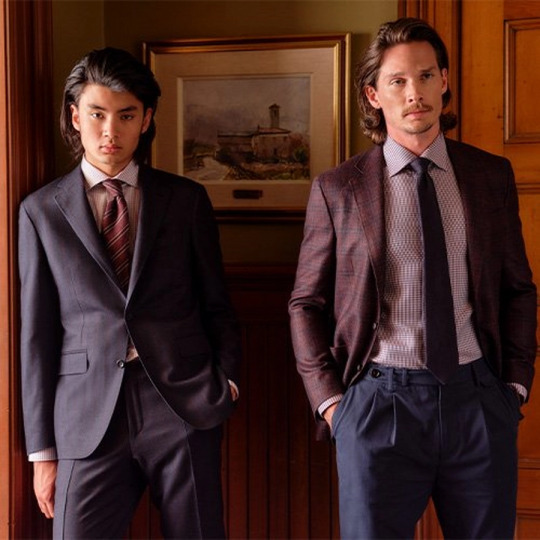#Harris Rosen
Text
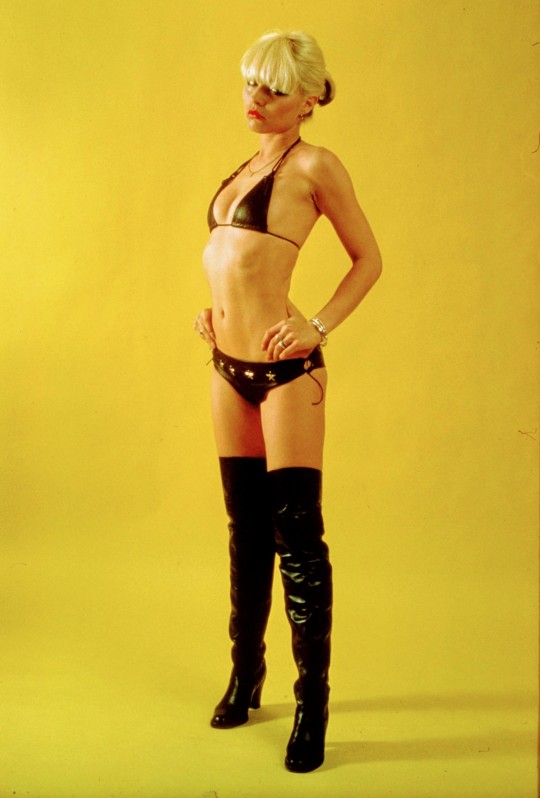
Debbie Harry photographed by Trixi Rosen for an article on punk rock attitude, published in After Dark magazine, October 1977.
#debbie harry#1970s#feminism#fashion#rock#alternative#style#leather#culture#celebs#singer#punk rock#musicians#trix rosen#70s#music#punk#pop#icons#people#🖤
2K notes
·
View notes
Text
#boyf riends#comida#joanna angel#ashlyn harris#will wood#evolution#levi ackerman x reader#all the young dudes#sunrise#daphne rosen#japanese beauty#nov 5th#melisa mendiny
123 notes
·
View notes
Text
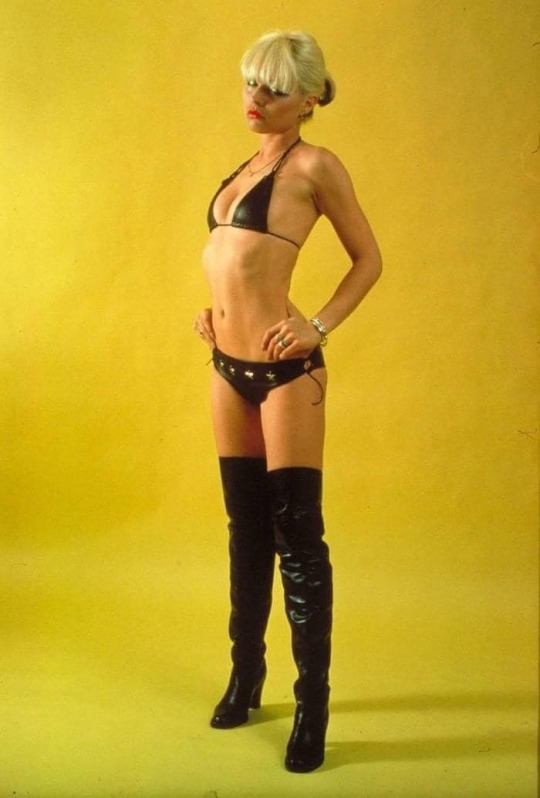
Debbie Harry, 1977 by Trix Rosen
26 notes
·
View notes
Text
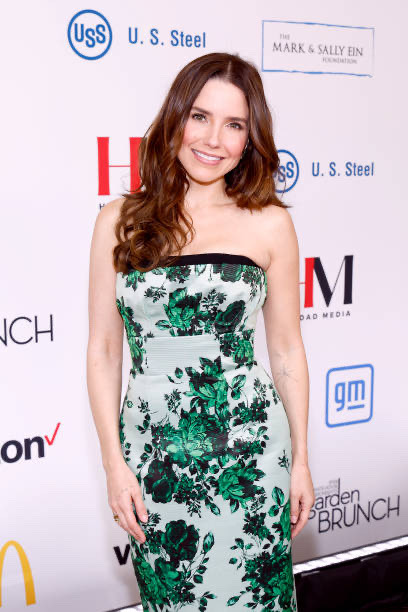

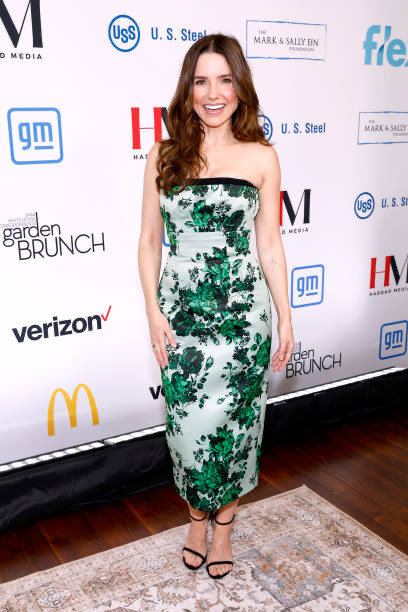

Sophia Bush attends the 31st Annual White House Correspondents' Garden Brunch at Beall-Washington House on April 27, 2024 in Washington, DC.
#sophia bush#ashlyn harris#kasie hunt#megan murphy#hilary rosen#joanna coles#white house garden brunch#whcd
10 notes
·
View notes
Photo
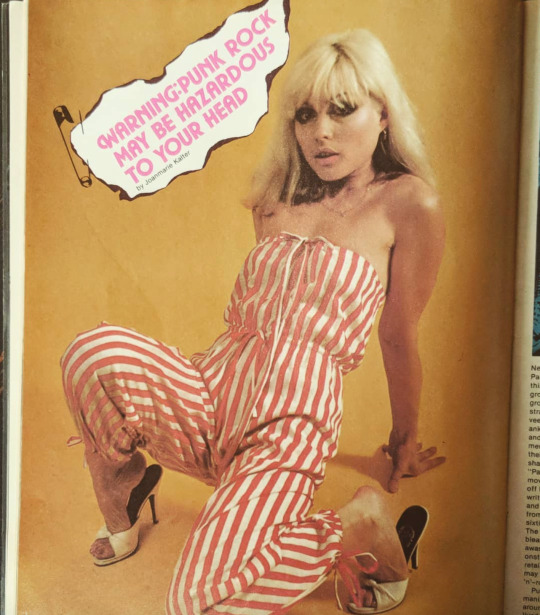
Debbie Harry photographed by Trix Rosen, 1977
276 notes
·
View notes
Text
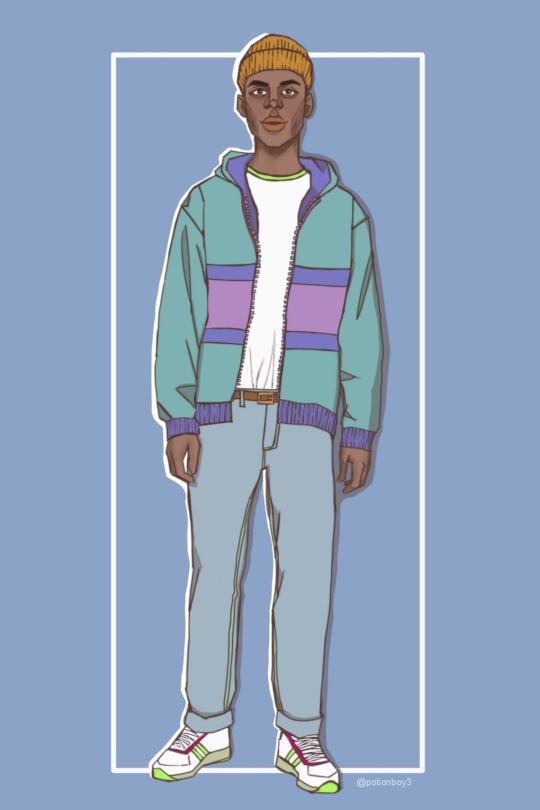
darby rosen
the last of the set! all five of them are done 💖
@gaygryffindorgal
5 notes
·
View notes
Text
El maquillaje es su vida… “Glamorous”
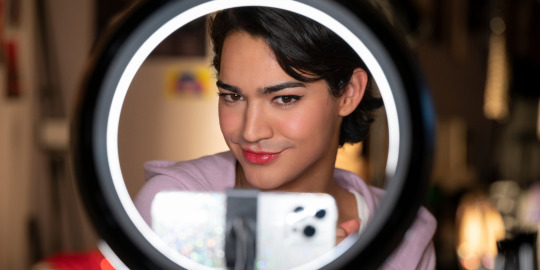
La historia gira en torno a Marco, un joven queer de género no conforme cuya vida parece estar estancada hasta que consigue un empleo para Madolyn Addison, una famosa empresaria del maquillaje. Allí tiene una oportunidad de averiguar lo que quiere de la vida, quién es de verdad y lo que significa realmente ser queer.
Estreno: 22 de junio de 2023 en Netflix.
youtube
La serie está protagonizada por Kim Cattrall, Miss Benny, Jade Payton, Michael Hsu Rosen, Ayesha Harris, Graham Parkhurst y Zane Phillips.
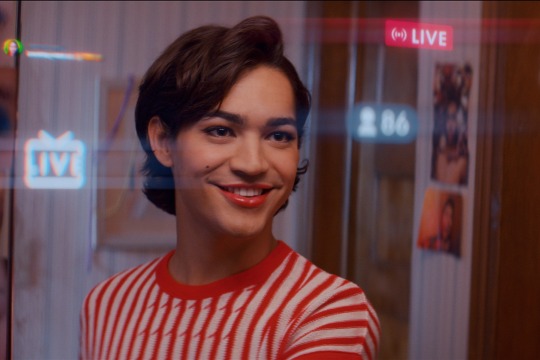



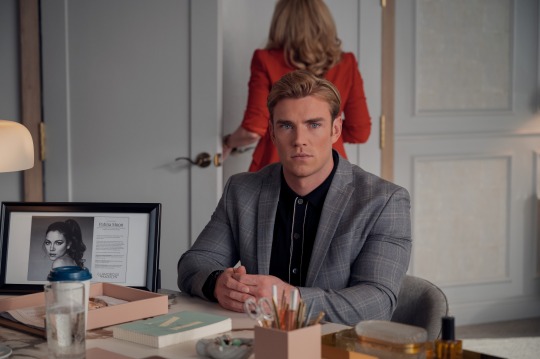
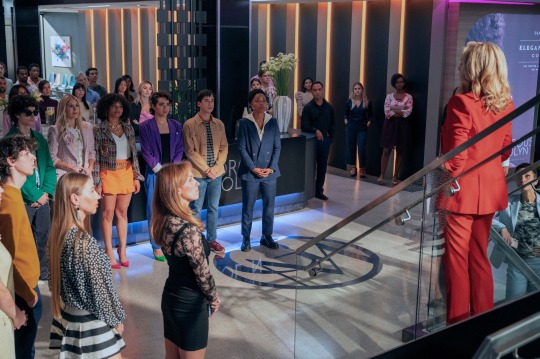
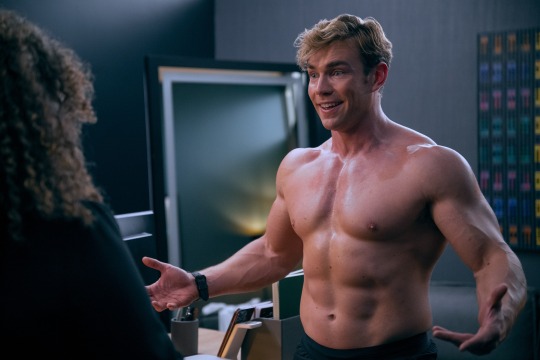

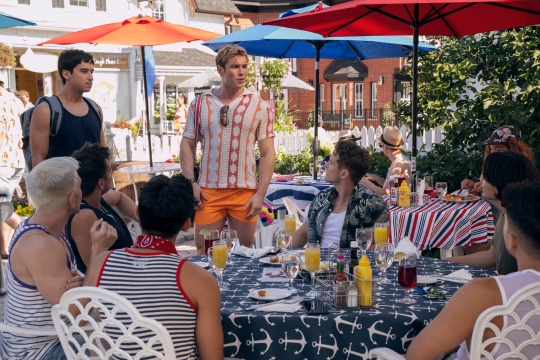
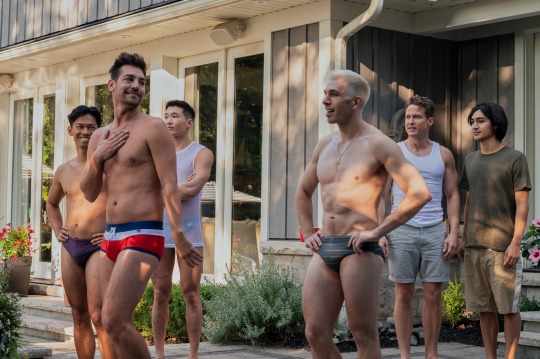
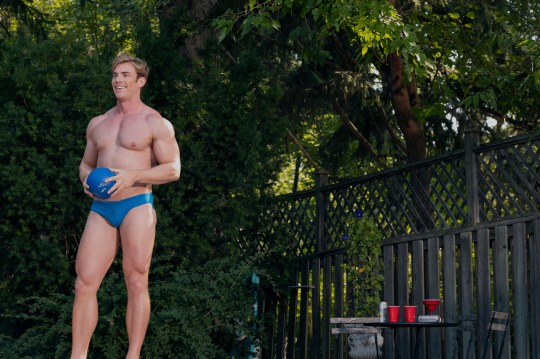
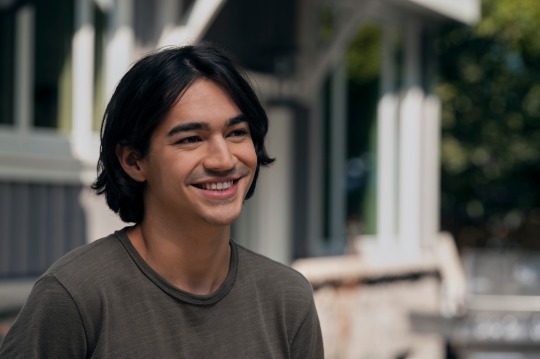
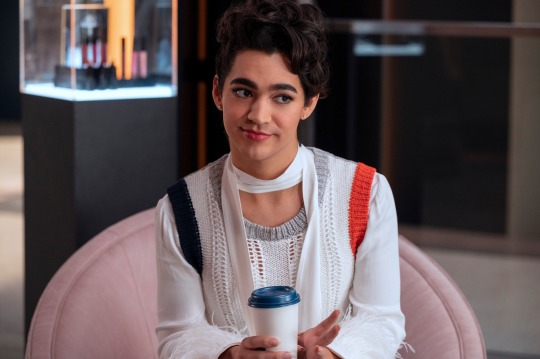
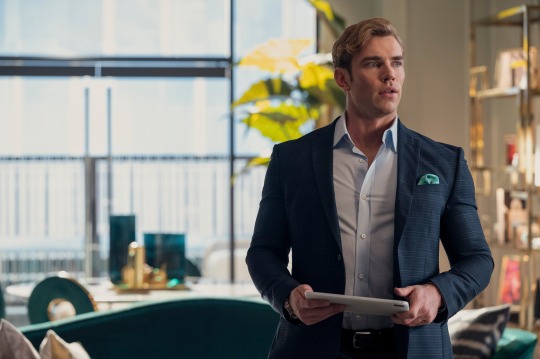

#Glamorous#Kim Cattrall#Miss Benny#Jade Payton#Michael Hsu Rosen#Ayesha Harris#Graham Parkhurst#Zane Phillips#Series#Netflix
0 notes
Text

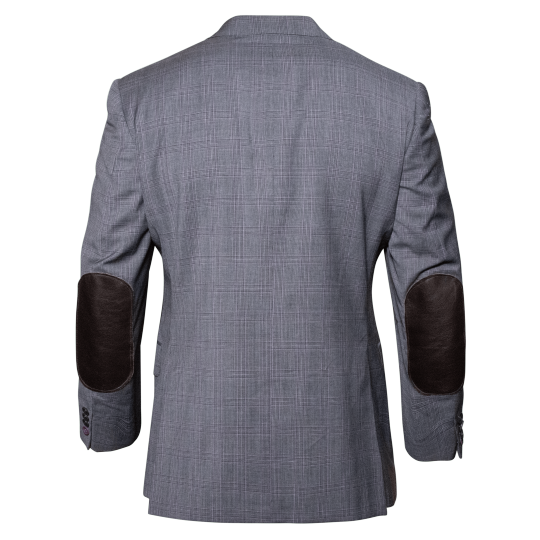
Harry Rosen Funky Proffesor Blazer
#harry rosen#clothing#designer#fashion#luxury#vintage#aesthetic#vintage luxury#vintage fashion#luxury fashion#menswear#mens fashion#1990s#1980s#1970s#1960s#1950s#y2k
0 notes
Text
Preview- Watership Down (UHD + Blu-ray)
Preview- Watership Down (UHD + Blu-ray)
Directed by Martin Rosen, Watership Down begins with an apocalyptic vision that pushes a group of rabbits to abandon their warren in search of a new home, in this landmark British animation. Richard Adams’ timeless novel is brought brilliantly to life as Hazel, Fiver and Bigwig tackle the brutal realities of the rural world – and mankind’s devastating impact on it – as they lead their colony to…

View On WordPress
#Angela Morley#Art Garfunkel#Bright Eyes#Clifton Jones#Denholm Elliott#Derek Griffiths#Hannah Gordon#Harry Andrews#John Bennett#John Hurt#Joss Ackland#Lynn Farleigh#Martin Rosen#Mary Maddox#Michael Graham Cox#Michael Hordern#Michelle Price#Nigel Hawthorne#Ralph Richardson#Richard Briers#Richard O&039;Callaghan#Roy Kinnear#Simon Cadell#Terence Rigby#Watership Down#Zero Mostel
1 note
·
View note
Text
45 notes
·
View notes
Text
Interview to JPJ
(by Steven Rosen, Guitar Player - July 1977, Chicago)
It was shared on ultimate-guitar.com by Steven Rosen himself (link). I suggest going to read the introduction because there's a bit of angry JPJ which is quite surprising (to me at least). Enjoy!
What was the impetus behind becoming a bass player?
I used to play piano when I was younger, and there was a rock and roll band forming at school when I was fourteen, but they didn't want a piano player, all they wanted was drums or bass. I thought, I can't get the drums on the bus, bass looked easy, four strings, no chords, easy so I took it up. And it was easy; it wasn't too bad at all. I took it up before guitar, which I suppose is sort of interesting. Before I got a real 4-string, my father had a ukulele banjo, a little one, and I had that strung up like a bass, but it didn't quite have the bottom that was required. Actually my father didn't want to have to sign a guarant or to back me in the payments for a bass. He said, ‘Don't bother with it; take up the tenor saxophone. In two years the bass guitar will never be heard of again.’ I said, ‘No Dad, I really want one, there's work for me.’ He said, ‘Ah, there's work?’ And I got a bass right away.
What was your first bass?
Oh, it was a pig; it had a neck like a tree trunk. It was a solid body Dallas bass guitar with a single cutaway. It sounded all right though, and it was good for me because I developed very strong fingers. I had no idea about setting instruments up then, so I just took it home from the shop. I had an amplifier with a 10 speaker... Oh, it was awful. It made all kinds of farting noises. And then I had a converted television; you know one of those big old stand-up televisions with the amp in the bottom and a speaker where the screen should be. I ended up giving myself double hernias. Bass players always had the hardest time because they always had to cope with the biggest piece of equipment. It never occurred to me when I was deciding between that and drums that I'd had to lug a bass amp.
What kind of music were you playing in that first band?
Shadows, Little Richard, Jerry Lee Lewis stuff. I started doubling on piano. We didn't have a drummer at first, because we never could find one. That happened to another bass player, Larry Graham, Sly Stone's bass player. He started off in a band with no drummer, which is how he got that percussive style. You've got a lot to make up for once the lead guitar takes a solo because there's only you left. You've got to make a lot of noise. We got a drummer after a while whom I taught, would you believe. I've never played drums in my life.
That must have definitely had an influence on your playing.
I suppose it must have. I don't like bass players that go boppity boppity bop all over the neck; you should stay around the bottom and provide the end of the group. I work very closely with the drummer; it's very important.
How long did that first band last?
Not very long. I found a band with a drummer. This band also came along with really nice looking guitars, and I thought, ‘Oh, they must be great!’ They had Burns guitars so I got myself one, too. The one with the three pickups and a Tru-Voice amplifier. We all had purple band jackets and white shoes, and I thought, ‘This is it, this is the big time.’ But as soon as I got out of school I played at American Air Force bases, which was good training, plus they always had great records in the jukebox. That was my introduction to the black music scene, when very heavy gentlemen would come up insisting on Night Train eight times an hour.
What was the first really professional band you were in?
It was with Jet Harris and Tony Meehan (bassist and drummer with The Shadows). That was when I was seventeen, I suppose. And those were the days when they used to scream all the way through the show. It was just like now, really, where you have to make a dash for the limos at the end of the night make a sort of terrible gauntlet. In the days before roadies, you'd have to drag around your own gear, so we all invested in a roadie. We thought we owed it to ourselves, and this bloke was marvelous. He did everything, he drove the wagon, he lugged the gear, he did the lights... the whole thing.
What kind of bass were you using with Harris and Meehan?
Oh, I got my first Fender then. I lusted after this Jazz bass in Lewisham, and it cost me about $250, I think. It was the new one. They'd just changed the controls, and I used that bass up until last (1975) tour, and then she had to go. She was getting unreliable and rattling a lot, and I just had to leave her home this time.
What followed your working with that band?
I got into sessions. I thought, ‘I've had enough of the road’, bought myself a dog and didn't work for six months. Then I did start up again. I played in other silly bands. I remember that Jet Harris and Tony Meehan band, John McLaughlin joined on rhythm guitar. It was the first time I'd met him and it was hilarious. Here he was sitting there all night going Dm to G to Am. That was my first introduction to jazz when he came along, because we'd all get to the gig early and have a blow. Oh, that was something, first meeting him. And then I joined a couple of other bands with him for a while, rhythm and blues bands.
Do you remember the first session that you ever did?
No, I don't think so; it was in Decca Number 2 (studio in London). I was late, and I suddenly realized how bad my reading was. There was another bass player there, a stand-up bass, and I was just there to provide the click. It was nearly my last session.
Who were some of the people you were doing sessions with?
All kinds of silly people: used to do calls with Tom Jones, Cathy Kirby, Dusty Springfield.
The Rolling Stones and Donovan, too, didn't you?
I only did one Stones session, really. I just did the strings, they already had the track down. It was ‘She's A Rainbow’. And then the first Donovan session was a shambles, it was awful. It was ‘Sunshine Superman’ and the arranger had got it all wrong, so I thought, being the opportunist that I was, ‘I can do better than that’ and actually went up to the producer. He came around and said, ‘Is there anything we can do to sort of save the session?’ And I piped up, ‘Well, look how about if I play it straight?’ because I had a part which went sort of ooowooooo (imitates a slide up the neck) every now and again, and the other bass player sort of did wooooo (imitates downwards slide) down below, and then there was some funny congas that were in and out of time. And I said, ‘How about if we just sort of play it straight; get the drummer to do this and that?’
How did the session go?
The session came off, and I was immediately hired as the arranger by Mickie Most whom I loved working with; he was a clever man. I used to do Herman's Hermits and all that. I mean they were never there; you could do a whole album in a day. And it was great fun and a lot of laughs. I did all of Lulu's stuff and all his artists. I did one Jeff Beck single, and he's never spoken to me since. It was ‘Hi Ho Silver Lining’. I did the arrangement for it and I played bass. Then we had ‘Mellow Yellow’ for Donovan, which we argued about for hours because they didn't like my arrangement at all, not at all. Mickie stood by me. He said, ‘I like the arrangement, I think it's good’. It wasn't Donovan. He didn't mind either but he had so many people around him saying, ‘Hey, this isn't you.’ But he sold a couple of a million on it, didn't he?
Was the Hurdy Gurdy Man session when you first met Jimmy Page?
No. I'd met Jimmy on sessions before. It was always Big Jim and little Jim. Big Jim Sullivan and little Jim and myself and the drummer. Apart from group sessions where he'd play solos and stuff like that, Page always ended up on rhythm guitar because he couldn't read too well. He could read chord symbols and stuff, but he'd have to do anything they'd ask when he walked into a session. But I used to see a lot of him just sitting there with an acoustic guitar sort of raking out chords. I always thought the bass player's life was much more interesting in those days, because nobody knew how to write for bass, so they used to say, ‘We'll give you the chord sheet and get on with it.’ So even on the worst sessions you could have a little runaround. But that was good; I would have hated to have sat there on acoustic guitar.
How long did you do sessions?
Three or four years, on and off. Then I thought I was going to get into arranging because it seemed that sessions and running about was much too silly. I started running about and arranging about forty or fifty things a month. I ended up just putting a blank piece of score paper in front of me and just sitting there and staring at it. Then I joined Led Zeppelin, I suppose, after my missus said to me, ‘Will you stop moping around the house; why don't you join a band or something?’ And I said, ‘There are no bands I want to join, what are you talking about?’ And she said, ‘Well, look, I think it was in Disc, Jimmy Page is forming a group’, he'd just left the Yardbirds ‘why don't you give him a ring?’ So I rang him up and said, ‘Jim, how you doing? Have you got a group yet?’ He said, ‘I haven't got anybody yet.’ And I said, ‘Well, if you want a bass player, give me a ring.’ And he said, ‘All right, I'm going up to see this singer Terry Reid told me about, and he might know a drummer as well. I'll call you when I've seen what they're like.’ He went up there, saw Robert Plant, and said, ‘This guy is really something.’ We started under the name the New Yardbirds because nobody would book us under anything else. We rehearsed an act, an album, and a tour in about three weeks, and it took off. The first time, we all met in this little room just to see if we could even stand each other. It was wall-to-wall amplifiers and terrible, all old. Robert (Plant) had heard I was a session man, and he was wondering what was going to turn up some old bloke with a pipe? So Jimmy said, ‘We're all here, what are we going to play?’ And I said, ‘I don't know, what do you know?’ And Jimmy said, ‘Do you know a number called, The Train Kept A Rollin'?’ I told him, ‘No.’ And he said, ‘It's easy, just G to A.’ he counted it out, and the room just exploded, and we said, ‘Right. We're on, this is it, this is going to work!’ And we just sort of built it up from there. ‘Dazed And Confused’ came in because Jimmy knew that, but I could never get the sequence right for years; it kept changing all the time with different parts, and I was never used to that. I used to having the music there, could never remember. In fact, I'm still the worst in the band remembering anything. And the group jokes about it, ‘Jonesy always gets the titles wrong and the sequences wrong.’ Even now I have a piece of paper I stuck on top of the Mellotron which says: ‘Kashmir remember the coda!’
What were some of your early amplifiers?
I've used everything from a lousy made-up job, to a great huge top valve (tube) amp. We started off in a deal with Rickenbacker where we had these awful Rickenbacker amps; they were so bad. Our first tour was a shambles. For about a year I never even heard the bass. They said, ‘We've designed this speaker cabinet for you’, and I said, ‘Let me see it, what's it got in it?’ It had one 30 speaker! I said, ‘All right, stand it up there alongside whatever else I've got, and I'll use it.’ I plugged it in, and in a matter of five seconds it blew up. I thought the bloke was having me on; I said, ‘There's no such thing as a 30 speaker!’ And I had to take the back off because I couldn't believe it. Then we met the guy from Univox, and he came up with a bass stack, which unfortunately didn't last the night. But while it was going, it was the most unbelievable sound I've ever heard. It was at the Nassau Coliseum in New York, I remember, and the bass filled the hall. It was so big, it couldn't have lasted. I don't think I'll come across anything that sounded like that. But as I said, three numbers and wheel the Acoustics out again. I used two or three 360 standard Acoustics for quite a long time. They served me well.
You used the Jazz bass until just recently?
Yeah. Oh, I got a hold of a very nice Gibson violin bass (pictured in the little cut out wheel on the cover of Led Zeppelin III). That was nice, too, it's not stage worthy, but it gives a beautiful warm sound. I don't like Gibson basses generally because they feel all rubbery; I like something you can get your teeth into. But the violin bass was the only Gibson that was as heavy as a Fender to play, but still had that fine Gibson sound. I used it on Led Zeppelin III, and I've used it every now and again, usually when I'm tracking a bass after I've done keyboards for the main track. The one I have went through Little Richard's band and then through James Brown's band, and it arrived in England. In fact, I saw it in an old movie clip of Little Richard. It was probably about a '48 or '50 or something like that; it was the original one. Actually, I've also got an old '52 Telecaster bass. I used that on stage for a while, for ‘Black Dog’ and things like that.
Do you ever use a pick when you play?
Yes, when the situation demands it; on the 8-string it's awful messy with your fingers. On ‘The Song Remains The Same’ I use a pick to get that snap out of the instrument. It's fun, you play different. If I was just playing straight bass, I'd use fingers. When I first started I always used my fingers.
How has playing with Jimmy Page for the last nine years styled your playing?
That's hard. I play a lot looser than I used to. For instance somebody like John Entwistle is more of a lead instrument man than I am. I tend to work closer with Bonzo I think. But then again I don't play that much bass on-stage anymore, what with the pianos and the Mellotron. I'll always say I'm a bass player, though.
How do you develop a bass part?
You put in what's correct and what's necessary. I always did like a good tune in the bass. For example, listen to’ What Is And What Should Never Be’ (on Led Zeppelin II). The role of a bassist is hard to define. You can't play chords so you have a harmonic role; picking and timing notes. You'll suggest a melodic or harmonic pattern, but I seem to be changing anyway toward more of a lead style. The Alembic bass is doing it; I play differently on it. But I try to never forget my role as a bass player: to play the bass and not mess around too much up at the top all the time. You've got to have somebody down there, and that's the most important thing. The numbers must sound right, they must work right, they must be balanced.
You just picked a track from the second album, but there was something so gloriously unique about the first Zep record.
I know what people mean when they say the first Zeppelin album was the best. It was the first. I don't know what it was; we could never recreate those conditions it was recorded in. It was done in about thirty hours, recorded and mastered. There was a lot of energy in those days. But I liked (Physical Graffiti). I liked most of them actually. The funny thing was about the first album, when we got to about the third album (Led Zeppelin III) and started using acoustics everyone was saying, ‘Ahhh, Led Zeppelin has gone acoustic. They've changed their style.’ What everybody forgets is there were two acoustic numbers on the first album. Right? ‘Babe I'm Gonna Leave You’ and ‘Black Mountain Side’. The funny thing is people try to pigeon-hole you with all that heavy metal stuff. And if they ever listened to the fucking albums they'd realize it was never riff after riff after riff. It never was like that, you know? Peculiar... oh, well.
Do you practice?
In a word, no. I fool around on piano, but bass I never practice. Although again, with the Alembic, I'm beginning to feel, ‘Wouldn't it be nice to have it in the room?’ It really makes you want to play more, which is fantastic.
The band has always had a strange relationship with the press.
There is an amount of professionalism which must be retained. You can't go around canceling gigs and things like that. After Robert's accident there were rumors of, ‘Oh, they're afraid to come out’ and this and that which was really hard on us because we've always tried to be as professional as possible. And we take a pride in this. We've tried to turn up on time but it gets hard moving this amount of people. And that sort of thing hurts. Robert was in a wheelchair and we had to wait until he was healed. And then we were all ready to go and he got tonsillitis on this '77 tour. And he must have felt so bad. I tell you if this band ever drops from favor with the public, a load of people are going to come down on our asses so fucking hard. They're just waiting for us to drop. I don't know why, I honestly don't know. I always remember the first review of our first album in Rolling Stone and the bloke dismissed it out of hand. I don't even think he would listen to it and said as much. Then they dismissed us as hype.
Who do you listen to?
I don't. I used to listen to a lot of jazz bass players once, but jazz has changed so much now, it's hardly recognizable. I listened to a lot of tenor sax players: Sonny Rollins, John Coltrane and all those people. Bass players? Scott La Faro, who died. He used to be with (jazz pianist) Paul Chambers. Ray Brown and Charlie Mingus, of course. I'm not too keen on the lead bass style of some players. Paul McCartney, I've always respected; he puts the notes in the right place at the right time. He knows what he's about.
Who don't you listen to?
Ian [Anderson] is a pain in the ass. We toured with Jethro Dull [sic] once and I think he probably spoke three words to Jimmy or I at any one time. The band was nice but he was such a funny fucker. His music bores the pants off me, it's awful. Page came up with the greatest line about them. He had a title for a live album when Jethro was playing in Los Angeles: ‘Bore 'Em at The Forum’. (Ritchie) Blackmore is another guy I don't like. He was supposed to have been a big session man but he must have done demos because he was never a regular session man. I'm getting out all my pet hates.
There's nothing you'd like to do outside of Zeppelin in an instrumental context?
I always get the feeling I'd like to write a symphony. I like all music. I like classical music a lot. Ravel, Bach, of course, Mozart I could never stand, though to play it on the piano is great fun. If Bach had ever come across the bass guitar, he would have loved it. Rock and roll is the only music left where you can improvise. I don't really know what's happened to jazz; it has really disappointed me. I guess they started playing rock and roll.
So you're able to continually experiment in Zeppelin and expand your playing?
Yes, absolutely. I wouldn't be without Zeppelin for the world. What's it like being in Led Zeppelin? I don't know. It is a peculiar feeling; it intrigues me.
#john paul jones#jonesy#led zeppelin#robert plant#planty#jimmy page#pagey#john bonham#bonzo#60s#70s#70s rock#70s music#rock music#ourshadowstallerthanoursoul
50 notes
·
View notes
Text
Here are 50 books Texas parents want banned from school libraries:
"Drama," by Raina Telgemeier
"When Wilma Rudolph Played Basketball," by Mark Weakland
"Lawn Boy," by Jonathan Evison
"Better Nate Than Ever," by Tim Federle
"Five, Six, Seven, Nate!" by Tim Federle
"The Bluest Eye," by Toni Morrison
"Out of Darkness," by Ashley Hope Pérez
"Ghost Boys," by Jewell Parker Rhodes
"l8r, g8r," by Lauren Myracle
"Me and Earl and the Dying Girl," by Jesse Andrews
"White Bird: A Wonder Story," by R.J. Palacio
"Ground Zero: A Novel of 9/11," by Alan Gratz
"Fun Home: A Family Tragicomic," by Alison Bechdel
"Jack of Hearts (and Other Parts)" by L.C. Rosen
"City of Thieves," by David Benioff
"Gender Queer," by Maia Kobabe
"This One Summer," by Mariko Tamaki
"We Are the Ants," by Shaun David Hutchinson
"The Breakaways," by Cathy G. Johnson
"All Boys Aren't Blue," by George M. Johnson
"The Perks of Being a Wallflower," by Stephen Chbosky
"Michelle Obama: Political Icon," by Heather E. Schwartz
"Stamped: Racism, Antiracism, and You," by Jason Reynolds and Ibram X. Kendi
"New Kid," by Jerry Craft
"Class Act," by Jerry Craft
"Salvage the Bones," by Jesmyn Ward
"Woke: A Young Poet's Call to Justice," by Mahogany L. Browne, Elizabeth Acevedo, and Olivia Gatwood
"Not My Idea: A Book About Whiteness," by Anastasia Higginbotham
"How to be an Antiracist," by Ibram X. Kendi
"A Good Kind of Trouble," by Lisa Moore Ramée
"We Rise, We Resist, We Raise Our Voices," by Wade Hudson and Cheryl Willis Hudson
"On the Bright Side, I'm Now the Girlfriend of a Sex God," by Louise Rennison
"The Kite Runner," by Khaled Hosseini
"It's Perfectly Normal," by Robie H. Harris
"Beyond Magenta: Transgender Teens Speak Out," by Susan Kuklin
"Monday's Not Coming," by Tiffany D. Jackson
"Happier Than Not," by Adam Silvera
"George," by Alex Gino
"What Girls Are Made Of," by Elana K. Arnold
"I Am Jazz," by Jessica Herthel and Jazz Jennings
"So You’ve Been Publicly Shamed," by Jon Ronson
"King and the Dragonflies," by Kacen Callender
"Go With the Flow," by Lily Williams and Karen Schneemann
"Last Night at the Telegraph Club," by Malinda Lo
"Weird Girl and What's His Name," by Meagan Brothers
"Flamer," by Mike Curato
"Milk and Honey," by Rupi Kaur
"A Court of Mist and Fury," by Sarah J. Maas
"47," by Walter Mosley
"Girls Like Us," by Gail Giles
#lgbt books#queer#lgbtq#lgbtq community#nonbinary#lgbt pride#lesbian#lgbtqia#sapphic#nonbinary lesbian#gay girls#bookstagram#bookblr#booksbooksbooks#reading#booklr#books and reading#books#texas government#uvalde texas#mississippi#wisconsin#ohio#kansas#kentucky#wlw love#wlw nsft#wlw ns/fw#wlw#wlw art
166 notes
·
View notes
Text
JILLIAN STYLES TAKES A LIE DETECTOR TEST | VOGUE ✓ VOGUE 13M VIEWS || 8M LIKES || 2 HOURS AGO
Jillian sat in front of the camera, a small smile playing on her lips, her hands neatly sprawled on her lap as the instructor sets up the detector. The interviewer speaks, “So, how are you feeling?”
Jillian smiles confidently, “Pretty good. I have the jitters, though. The happy jitters. I’ve never taken one of these tests before so ‘m pretty excited!”
The interviewer laughs, “Good.”
The instructor attaches a finger clip onto Jillian’s index finger and sits back down, looking at the screen before giving the interviewer a thumbs up as a signal that he’s ready. After, the crew starts up the camera and Jillian speaks.
“Hey guys! My name is Jillian Styles and I am here with Vogue to do a lie detector test! I’m gonna be completely honest when I say I’m very excited. I haven’t done one of these before.”
The studio radiated positivity just from her personality, the smile on her lips brightening the room. The interviewer smiles. “Alright, so I’m pretty sure you know how this works. I ask you questions and you answer them honestly, well, as honest as you can, and our instructor will tell us if you lied or not.”
Jillian smiled at the camera before making eye contact with the interviewer. “First, we’ll start with the basics. What is your name?”
Jillian looks at the camera. “My name is Jillian Rosen Styles.”
It’s quiet for a quick second before the instructor lifts up a thumb, “Truth.”
Jillian smiles as the interviewer asks another question. “What is your profession?”
“I am a film producer who makes clothes as a backup.” Another ‘truth’ rolls through and the interviewer wraps up the basic questions.
“Alright, now onto the more interesting questions.”
Jillian smirks confidently. “Let’s do it.”
“So, as many may know, you had the famous singer Harry Styles fall in love for you in a heartbeat,” Jillian blushed at the notice of her husband. “Care to tell us how you first met?”
“Me and Harry met on the set of Dunkirk, a movie he was filming from 2016-2017, and I was in charge of costume design and management. I was the one who made sure the costumes fit, there were no casualties with them, and made sure that they were comfortable. I bumped into Harry the day of his fitting, where he spilt a cup of coffee onto me.” She giggled, “He turned into a blushing mess at that point, apologized profusely and wouldn’t let it go until I let him buy me a coffee, that time he didn’t spill it on me though.”
The instructor was silent for a second before giving a thumbs up, “She’s telling the truth.”
The interviewer laughs, “sounds like something straight from a romance novel.”
Jillian laughs, “Right!”
“So, a question everyone has been wanting to know, did Harry fall first or did you?”
Jillian was silent for a moment, “Harry.”
The instructor gave a thumbs down, Jillian blushing brightly when he spoke, “false.” She hid her face from embarrassment as the interviewer laughed.
“That’s adorable!” Once she settled, the interviewer asked another question. “Did Harry write any songs about you?”
Jillian breathed deeply, “Yeah.” She spoke, shrugging like it was nothing, a difference to her blushing face. “Maybe a couple.”
The interviewer gave a thumbs up.
“Did you write any songs about Harry?”
Jillian nodded, “Of course I have. Plenty.”
Another thumbs up.
The interviewer’s eyebrows shot up, “Really?”
“Mhm. I have one that’s finished and one that’s half-way finished. I haven’t let Harry listen to any of them, though. He’s pretty sad about that, but I want him to hear it when I sing it.”
“She’s telling the truth.”
From home, Harry sits in front of his computer screen, smiling softly at the face of his wife, the cold metal ring on his left hand a symbol of their love, his heart bursting at the seems at her reddened cheeks. Her big bright eyes, her full lips, her soft skin, her rosy cheeks. Everything about her made her seem so elegant.
The interviewer speaks, “You and Harry seem to be pretty in love! I mean, he proposed after 8 months of dating! Are there any children in the near future?”
Jillian smiles dashingly, “Me and Harry have talked about children for a while now, and we’ve both agreed that having a little mini him or me running around our house wouldn’t be too bad. But, for right now, we’re enjoying life with just us. We’re not fully ready for such a big responsibility at the moment.”
The instructor puts a thumbs up, “Truth.”
“Nice, nice. I can agree with you that having a mini Harry Styles running around would be so adorable.”
Jillian giggles, “and hectic. That man is always so energetic, it’s incredible. I don’t think I’m ready for two of them!”
The crew around the studio started to laugh as well, a positive energy flowing through the white room. The interviewer settles down before speaking again, “Well, it looks like that’s the end of my questions. Thank you again, Jillian, for taking the time to come out here and doing this.”
Jillian smiles at the camera, “Thank you for inviting me! This was so fun! I’d say I’m pretty much an honest person, and I’m so glad I was able to do this!”
The video ended with a little snippet of banter with Jillian and the instructor as he takes the finger clip off of her finger, and a small montage of pictures and videos of her and Harry.
They seemed like the most adorable couple ever.

A/N: this is so bad ik, let’s not talk about it
135 notes
·
View notes
